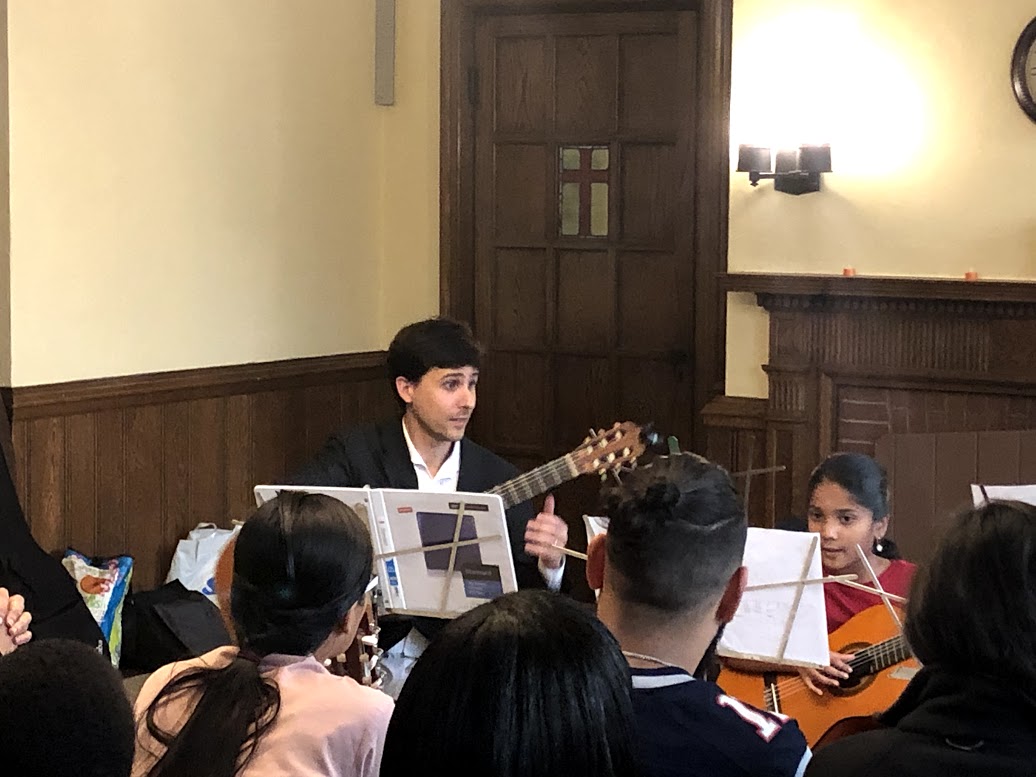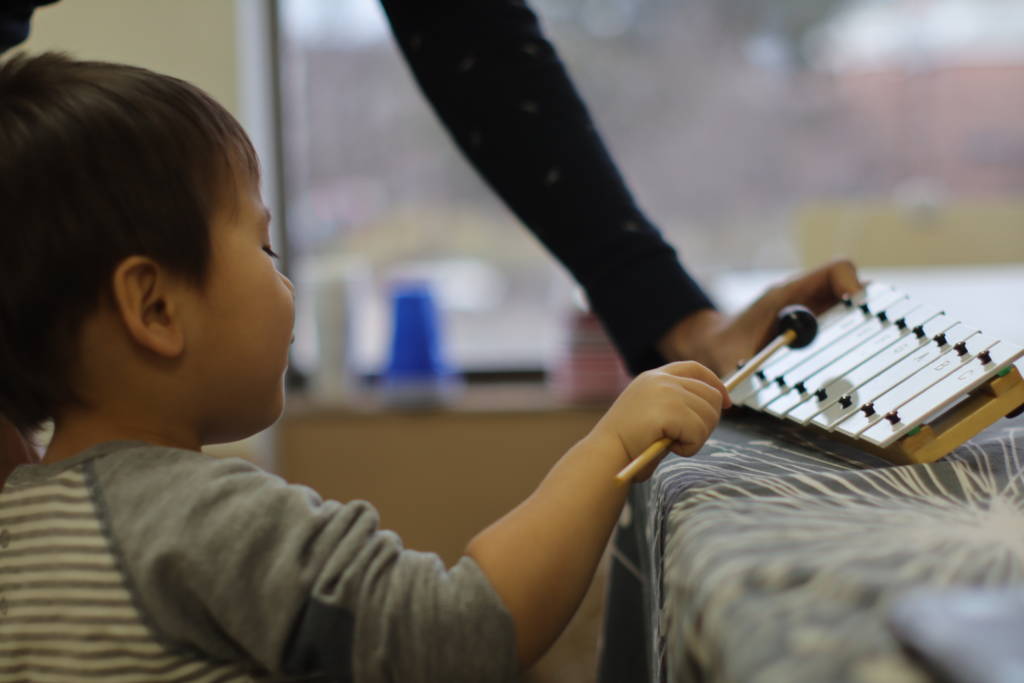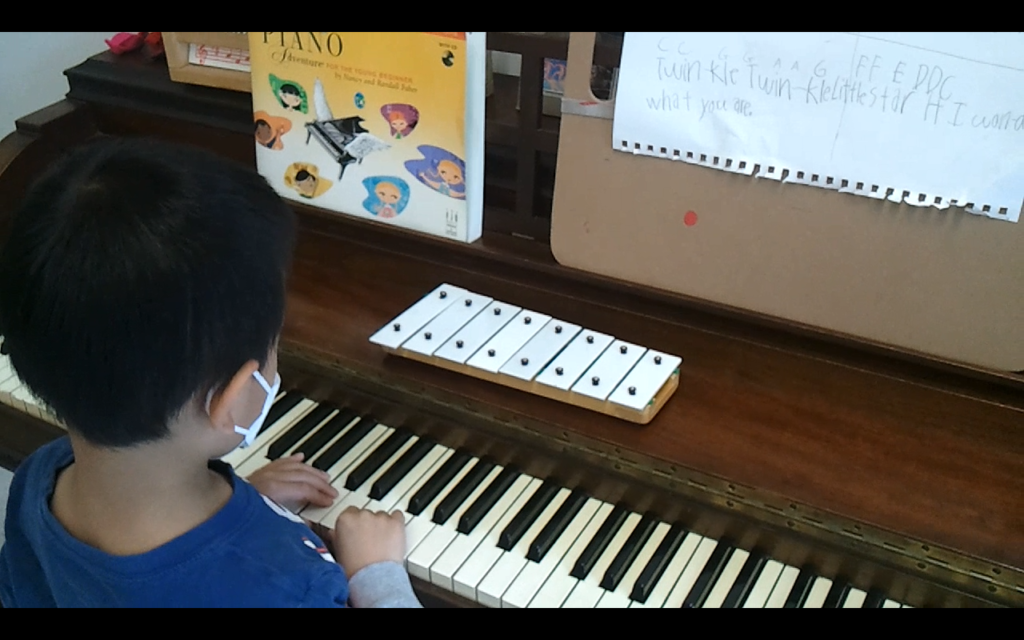
News headlines are regularly reminding us that kids who learn music do better in their academic classes as well. But why is this? Some argue that music lessons are the reason that those kids are doing better in their academics, while others argue that it’s the kids who would do better anyway, either because of their inherent drive or circumstances, that happen to also opt into music.
Common-sense reasons why music students do better in academics
While there is already much evidence to suggest the former, please consider these more common-sense observation from a music teacher (yours truly):
- Kids who take music lessons, just plain get more time with an adult mentor.
And that mentorship matters! Just think about it. Even if your kids are just enrolled one day per week in a music class or lesson, if they start when they are five years old, then by the time they are fifteen they will have received five-hundred more hours of direct instruction under an adult mentor than they would otherwise. This means that those kids who are taking music are talking to a skilled, professional, caring adult for five-hundred more hours that their peers who are not taking music.
- Some academic concepts are learned first in the music class.
This may seem counter-intuitive, so let me explain. For example, it’s often in music where kids first learn how to read a graph. Think about it: what is musical notation other than “pitch over time?” In order to read musical notation, students must become proficient at reading graphs. And they don’t just read these graphs once, they read them again and again until they master the skill. It’s no wonder that when students who study music get to their algebra class they’re ready—it’s because they’ve already mastered a certain level of literacy that will transfer to reading graphs in other subjects.
Of course, that’s just one example. Students who study music are exposed to other mathematical concepts, such as fractions (e.g. quarter notes, half notes, and the like). Students are also exposed to higher-level linguistics, such as poetry in the form of lyrics. For my youngest students, I am often teaching them what a syllable is in order to teach basic rhythms via words like “Zoo,” “Mon-key,” and “Al-li-ga-tor.” The list goes on and on.
- Music students are required to work in teams, which helps them build professional skills
Kids who take group music classes, such as band, choir, or ensemble, need to work together to accomplish their goals. They need to communicate with one another, they need to listen to each other to get the pitch and timing just right, and they need to be on time. In fact, to emphasize the last point, I’ll share that my high school jazz band teacher would always share with us this strict guidance: “Fifteen minutes early, on time. On time, late. Fifteen minutes late, fired.”
I will never forget this life lesson.
And the amazing thing is this: in music, kids want to build these professional skills. They want to communicate with one another because they want to solve the various challenges that good music presents them with. They want to listen to each other for rhythm and timing because that’s what makes the music sound better. And they want to be on time to rehearsals and to performances because they know that others are depending on them. All of these habits, of course, benefit them in their academics as well.

Conclusion
So these are some of my thoughts on some of the more common-sense, non-scientific reasons that I believe that every child benefits from musical instructions. Of course, if you need more scientific proof, I do invite you follow some of the links below and do some research on your own. However, if you’re persuaded, I encourage you to enroll your kids in music today—whether that be here at MAP Family Learning Center or elsewhere. Music education is a worthwhile investment, and one whose positive impact lasts a lifetime.

More Music Education in the News
Here are some more resources on the efficacy of a quality, sustained music education:
- f You Want Smarter Kids Teach Them Music, Not Coding, According To MIT https://awarenessact.com/if-you-want-smarter-kids-teach-them-music-not-coding-according-to-mit
- Combining math with music leads to higher test scores, according to review of 50 years of research https://phys.org/news/2023-06-combining-math-music-higher-scores.html
- How to improve the school results: not extra maths but music, loads of it: https://www.theguardian.com/education/2017/oct/03/school-results-music-bradford

Colleague @wolftune reminded me about these posts he made on the subject in 2008. They’re great reads — you should read them!
* https://blog.wolftune.com/2008/06/what-is-whole-point-of-music.html
* https://blog.wolftune.com/2008/06/bene
Your point about communal skills is spot on and often overlooked. Nice post.